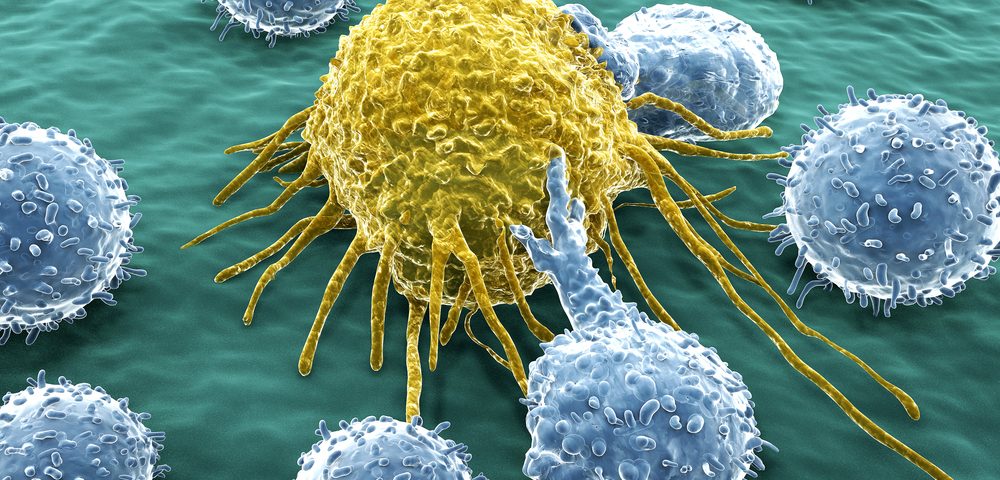The experimental immunotherapy SD-101 combined with the anti-PD-1 agent Keytruda (pembrolizumab) is safe and may be a promising approach for patients with metastatic melanoma, according to data from a Phase 1b/2 study.
Preliminary data from the KEYNOTE-184 study was presented at the European Society for Medical Oncology (ESMO) Congress Oct. 7-11 in Denmark. The presentation showed that 75 percent of study patients responded to treatment,
Dynavax‘s SD-101 is a Toll-like receptor 9 (TLR9) agonist that prompts a potent and focused immune response to cancer. It activates two major TLR9 signaling pathways that work together to rouse both the innate and adaptive immune system into generating T-cells that maintain long-lasting therapeutic effects.
In earlier preclinical studies, SD-101 showed anti-tumor activity in several cancer mouse models both as a single therapy and in combination with checkpoint inhibitors. Combined with anti-PD-1 inhibitors, SD-101 reduced tumor volume and improved survival rates more than PD-1 inhibitors alone.
To assess whether the synergistic effects seen in animal tests could be replicated in humans, Dynavax collaborated with Merck to conduct the open-label multi-center trial (NCT02521870) in metastatic melanoma patients. The trial aimed to evaluate the combination of SD-101 plus Keytruda, the anti-PD-1 agent already approved for metastatic melanoma.
The study assessed the safety of intratumoral SD-101 in combination with Keytruda in 16 patients and its anti-cancer effectiveness in five patients.
Results showed that three out every four patients who had never received anti-PD-1 therapy exhibited positive responses to treatment, including one complete response and two partial responses.
The combination was found to be well-tolerated in all patients. The researchers did not observe any dose-limiting toxicities. Common treatment-related adverse events were flu-like symptoms including fever, chills, and muscle pain. No immune-related adverse events were reported.
The research team also assessed patients for specific biomarkers, suggesting that the combination treatment elevated the production of specific immune cell types that are associated with multiple immune functions.


